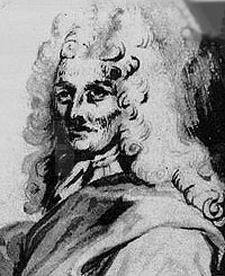 The stability promised by the 'Glorious Revolution' of 1688 fostered economic growth in England. Nevertheless, the public finances were still weakened from over fifty years of turbulence and mismanagement. As a result, political pressure grew for the creation of a national bank. Consequently the government received many proposals to a create such an institution that could mobilise the nation's wealth.
The stability promised by the 'Glorious Revolution' of 1688 fostered economic growth in England. Nevertheless, the public finances were still weakened from over fifty years of turbulence and mismanagement. As a result, political pressure grew for the creation of a national bank. Consequently the government received many proposals to a create such an institution that could mobilise the nation's wealth.
In 1691, the Scotsman, William Paterson, who had experience banking from his time in Amsterdam, was part of a group that made one such proposal; however, the government rejected it. Undeterred, he made another proposal three years later along with the merchant Michael Godfrey. This time the government accepted the plan to create a bank to administer a fund for public borrowing.
An Act of Parliament passed through the Houses of Parliament, and on 27th July 1694 the investors were incorporated as the Governor and Company of the Bank of England after being granted their Royal Charter. Paterson became one of its directors; Godfrey became the deputy governor; with another London merchant, John Houblon, as the bank's first governor. Within a few days the bank opened for business at the Mercers' Hall in Cheapside, London, having lent the government £1.2 million.
The Bank of England site includes a pdf file of the Tonnage Act of 1694 that founded the bank.
Related posts
First European banknotes, 16th July 1661
First banknotes issued in America, 3rd February 1690
First electronic Automatic Teller Machine installed, 27th June 1967
Customised search for historical information
27 July 2009
On this day in history: Bank of England founded, 1694
Subscribe to:
Post Comments (Atom)















4 comments:
I do realise that the contribution of the Huguenots to the establishment of the Bank of England is still being debated. But it is still worth mentioning them, I think.
The Heritage and Contributions of Refugees to the UK (no author?) said that 7 of the 24 founders of the Bank of England were Huguenots. The first Governor of the Bank of England, Sir John Houlbon, was a Huguenot.
Hels
That is a very interesting point that you make. Especially with regard to contemporary attitudes towards immigrants as a drain on the economy rather than as a source of revitalisation.
One of my favourite facts about the London Huguenot community is that they used to make the hats for the Catholic Cardinals. It seems that, for them, religious dispute shouldn't get in the way of making money.
The history of the Bank is naturally one of interest, but also of continuing relevance to the Bank today. Events and circumstances over the past three hundred or so years have shaped and influenced the role and responsibilities of the Bank. They have moulded the culture and traditions, as well as the expertise.
prestio: When doing research for these posts I am often surprised by how often the themes are relevant to contemporary issues.
Post a Comment